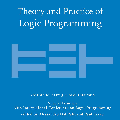We present a general approach to planning with incomplete information in Answer Set Programming (ASP). More precisely, we consider the problems of conformant and conditional planning with sensing actions and assumptions. We represent planning problems using a simple formalism where logic programs describe the transition function between states, the initial states and the goal states. For solving planning problems, we use Quantified Answer Set Programming (QASP), an extension of ASP with existential and universal quantifiers over atoms that is analogous to Quantified Boolean Formulas (QBFs). We define the language of quantified logic programs and use it to represent the solutions to different variants of conformant and conditional planning. On the practical side, we present a translation-based QASP solver that converts quantified logic programs into QBFs and then executes a QBF solver, and we evaluate experimentally the approach on conformant and conditional planning benchmarks. Under consideration for acceptance in TPLP.
翻译:更确切地说,我们用一种简单的形式主义来描述逻辑程序描述各州、初始州和目标州之间的过渡功能。为了解决规划问题,我们使用量化的问答数据集编程(QASP),这是ASP对原子的延伸,具有与量化的布尔兰公式(QBFS)类似的存在性和通用量化的量化的量化逻辑公式(QBFS)的通用量化的扩展。我们定义了量化逻辑程序的语言,并用它来代表不同符合性和有条件规划的变异的解决方案。在实际方面,我们提出了一个基于翻译的QASP解析器,将量化逻辑程序转换成QBFFS,然后执行QBFS解析器,我们实验地评价关于一致性和有条件规划基准的方法。在TPP的接受中,我们考虑了这个方法。




